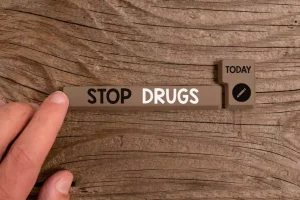It provides invaluable knowledge about coping skills, support networks, and self-reflection techniques. Making connections in the recovery sharing your story in recovery community is vital for long-term success. Here, individuals can find support, encouragement, and accountability from like-minded people.
- Ultimately, sharing personal recovery stories is significant.
- These 3 red flags today are things I know will lead me to a relapse and I know if I intervene at those points, the path to relapse is stopped.
- It provides invaluable knowledge about coping skills, support networks, and self-reflection techniques.
- Sharing personal recovery stories has a great impact on people, creating an emotional connection and grabbing attention.
- We all make mistakes, but it is what we do after we make them that defines us.
- From my personal experience, I can honestly say that I left RVR a new person with a new identity who I cherish to this day.
FAQs about The Power Of Storytelling In Addiction Recovery: How Sharing Your Story Can Help With Healing
A great example of storytelling as a marketing tool is Alcoholics Anonymous (AA). AA members share their personal recovery stories at meetings. This helps break down barriers between members, shows the effectiveness of AA’s program and inspires hope.
Do’s and Don’ts of Telling Your Story

Sharing a story about your mental health challenges can help in your own recovery as well as offer encouragement and support to others with similar experiences. Sharing your story also helps promote understanding and empathy to those without mental illness. It creates a bond which captivates attention and encourages understanding. These stories can challenge bad views on addiction and mental health, eliminating stigma.
Some Facts About “The Power of Storytelling in Addiction Recovery: How Sharing Your Story Can Help with Healing”:
If you want to go the extra mile and have the skills to do so, write your story. From the first time you fell prey to addiction to the very moment you attained sobriety. Talking about your recovery journey can help other addicts understand that even at rock bottom, recovery from substance use disorder is attainable. An addict may not listen to a doctor, preacher, family member, or counselor, but he may pay attention to someone who has walked in his shoes. Getting into the nitty gritty of our stories is hard when we have to highlight the stuff we did for addiction.

thoughts on “The Way Back from Mental Illness: 6 Reasons Why You Should Tell Your Story of Hope and Recovery”
Connecting with those going through similar experiences provides a sense of understanding, belonging, and empathy, which is key for sobriety. Before they turn to a health care professional, many people may turn to community and faith leaders when facing mental health problems or traumatic events. Consider starting with an anecdote or the defining moment of your journey.
Key Elements of an Effective Recovery Story
- A successful recovery story should combine honesty and inspiration, honestly portraying both the difficulties and successes of the journey.
- This was partly due to April’s poor weather, but also reflects the lingering effects of the cost-of-living crisis.
- When sharing recovery stories, timing and emotional stability are important.
- Personal recovery stories can also have a big impact on readers, creating an emotional connection, and affecting attitudes and behaviours.
Looking for help? Call ( 831-4586 for a free service to help find you a qualified rehab facility.

Ways To Share Your Recovery or Addiction Story
- While you don’t need to dive too far into the details of your journey for it to be powerful, you should also be honest.
- Be sure to acknowledge your entire support system in your story.
- These people have played a vital role in your recovery, and their support should be recognized.
